

Digital privacy is a human right. But we are being watched more than we realize. Android phone users are at risk of particularly watchful eyes, even with customized software. Even so-called privacy-respecting ROMs are not entirely reliable.
is there any way completely stay incognito with an Android? Actually yes. /e/ from Foundation /e/OS is one of the very few Android-based operating systems that does not refer. none send the information back to Google. I tried and tested the software to see if it was worth using and if complete privacy came at the expense of functionality.
Android's Irregular Privacy
Privacy is an undersupplied commodity in the 21st century. Information about you, your friends, your preferences, and your gender identity is big business for companies that can share and sell data to make millions of dollars. Most of them even know the finer details like the car you drive, your location, and your income.
It is easy for these companies to access your data. You're probably giving them everything they could ever want to know, thanks to that device you're holding right now.
If you're using an Android device from Google, every step you take is reported back to Google. Every search you make is stored on Alphabet servers, and every app you install sends information back to Google and the app creators and whoever they want to share it with.
With a stock Android phone, it's impossible to turn off this pervasive tracking - and the so-called privacy controls don't actually do what they're supposed to. Your phone is not yours; It's owned by Google (Or Apple, but that's a different story).

For at least the last ten years, I've been trying to escape the constant surveillance that tech companies make money from watching me 24 hours a day.
I am not alone in this. The 'r/degoogle' subreddit has more than 60,000 members eager to get Google out of their lives and businesses. And since the first Android phones arrived in 2008, developers have ditched Google components and created alternate OS versions.
Despite best efforts, custom ROMs still Send information back to Google thanks to the pre-installed system apps necessary for the operating system to function.
A report published in October 2021 by researchers from the University of Edinburgh found that custom Android variants produced by Samsung, Xiaomi, Huawei, Realme and LineageOS “pass a significant amount of data to the operating system developer (e.g. Samsung) and third-party parties. those with pre-installed system apps”.
The situation with Lineage was not so clear because although the developers themselves did not collect any data, the amount of data sent to Google was similar to that sent by a stock Android handset. The researchers found that there was no way to disable this data collection.
The problem with this is twofold. The first is that a supposedly non-Google mobile operating system (like LineageOS) spies on what you do. The second is that because ROMs are supposedly safe, users have a false sense of security.
According to the report, while collecting some data is necessary, device manufacturers are collecting horrific amounts. As stated in the report: "As we will see the data transfer observed by Samsung, Xiaomi, Huawei, Realme and LineageOS Android variants, occasional data transmission to the OS developer to check for updates etc. How are you today."
In their testing, the researchers found only one Android-based operating system sent by the e Foundation to Google - /e/OS zero data.
Dropping my Sony Xperia XA2 Ultra with LineageOS into a bath of warm water, I set out to try e/OS/ and see what it's all about.
Understanding /e/OS
The /e/OS developers want it to be made available to as many users as possible, with builds for 248 handset models from most manufacturers. Most of these versions are beta versions; this means that the software is still in the testing phase, may not be fully stable yet, and contains known and important bugs. If you don't want or can't buy a new device right now, but are dying to get Google out of your life, beta releases make Working — although a crash-free experience is not guaranteed.
The easiest way to get an /e/OS device is to purchase a Murena handset with /e/OS preinstalled. Prices start at $229.99.
For most people, the simplest and least expensive way to try /e/OS is to buy or find an old handset from this list of nine devices, which includes Fairphone and various Exynos powered Samsung Galaxy phones. If you're lucky enough to have one or want to buy one, there's an easy installer for /e/OS.
I chose the 2017 Samsung Galaxy S8 (with Exynos chipset). For privacy-conscious users on a budget, the cheapest option compatible with easy installation is the Samsung Galaxy S7, available for under $100 from your favorite online marketplace.
Easy installation is available for Windows and Linux, and installation instructions are available here. macOS users are unfortunately out of luck for now.
Once the easy setup is installed on your host system, simply launch it and follow the onscreen instructions. The process is mostly automatic, but sometimes you have to press certain buttons on your phone. I found that the process takes about an hour to complete.

How Does /e/OS Perform?
The first thing I noticed after starting /e/OS was that there were no third-party apps that users rarely wanted but couldn't be uninstalled. This was exactly the kind of thing Edinburgh University was talking about.
When my eagerly awaited S8 arrived, it already had a Facebook app installed, running, and sending data to Facebook as soon as I opened it. None of these existed when /e/OS was installed.
I was faced with a clear, uncluttered home screen adorned with only the essential apps needed to make the phone functional. Most of these apps are created by operating system developers and include an email client, a dialer, contacts app, web browser, an offline music player, and an app store. None of these built-in apps send any information to anyone without your express consent.
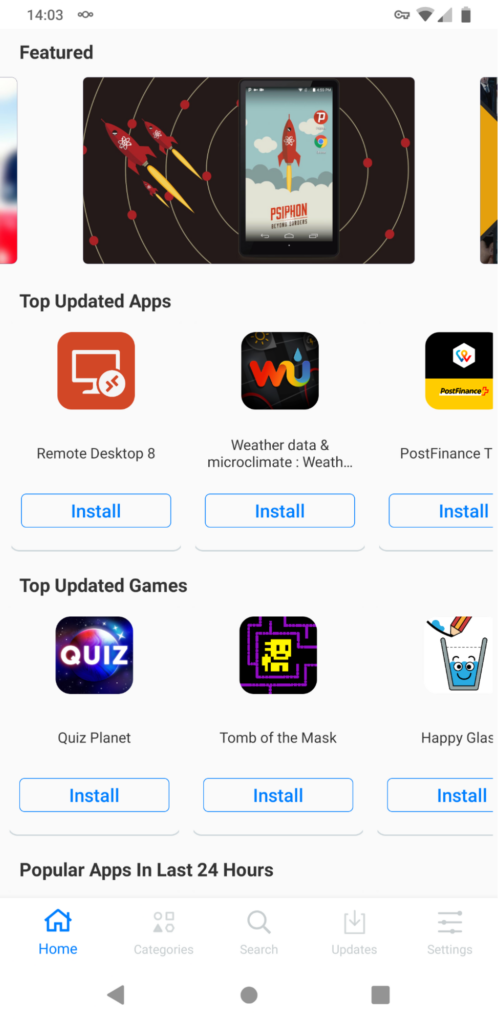
Functionality is fundamental. However, if you want your phone to keep your secrets rather than sell it to people who can pay to tie an advertising ID to a real-world name, you want it to stay that way or at least be very selective about what you load. .
The browser that ships with /e/OS is Bromite, "a fork of chrome with ad-blocking and enhanced privacy support". Bromite offers an experience close to the Chrome browser on stock Android, but without the tracking, tracking, and ads.
By default /e/OS comes with the Bliss launcher that you can use to open your apps; Provides home screen, app drawer and dock. All your apps are available on the home screen and automatically added as soon as they are installed. However, there is no app drawer. If that doesn't fit your workflow, there are dozens of alternative launchers available in the app store.
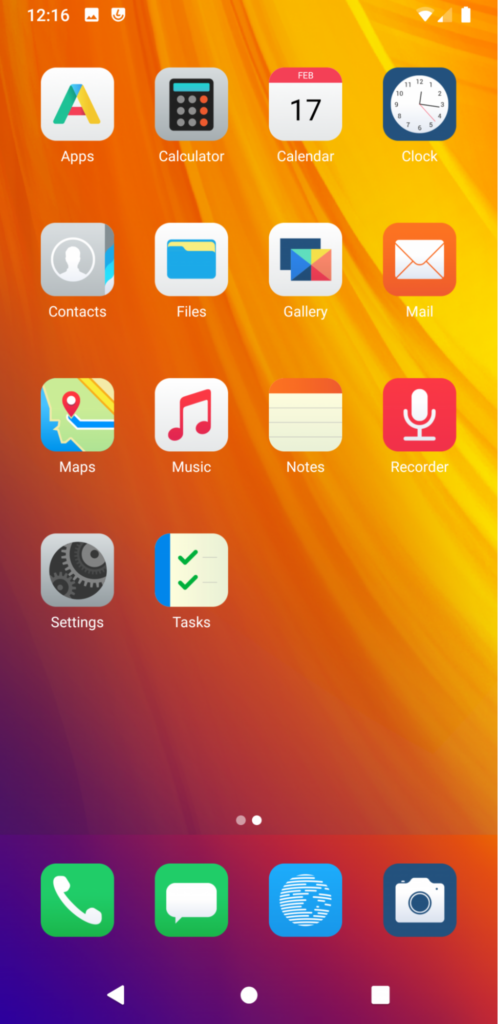
Performance-wise, /e/OS works, but nothing extraordinary. But in terms of privacy, it's one of the only operating systems worth considering.
App Store
/e/OS is Google and has no trackers, but only until you start installing apps that are not privacy friendly. if you really If you want to, you can completely undermine your own privacy by installing Google's full suite of mobile apps. Keep in mind, though, that each of these apps will track you as efficiently as if you were running a stock Google handset.
/e/OS does not limit you to the apps you can install from the app store. That said, it gives you more information about them. Each app comes with user ratings as well as privacy ratings. Below these are the analyzes performed by Exodus Privacy. Here you can check exactly what permissions an app requires, as well as which trackers are embedded and who controls them.
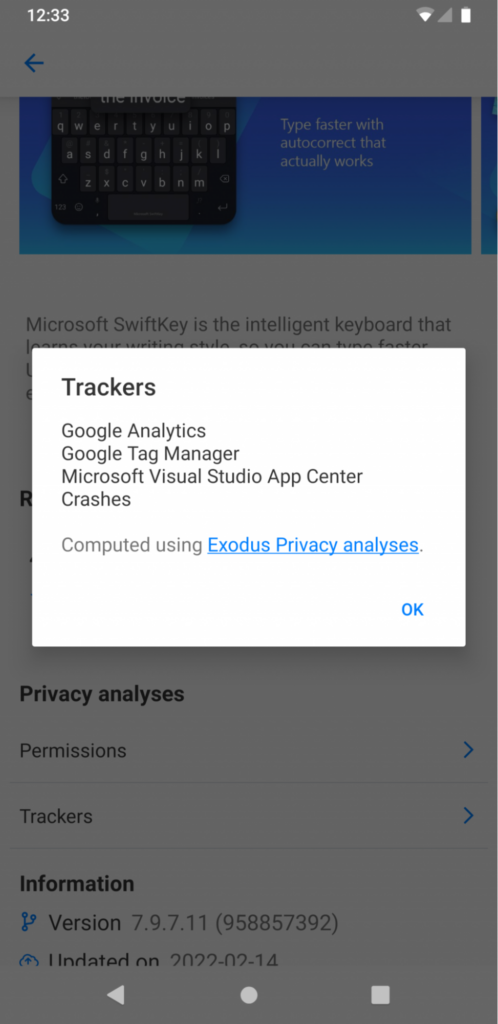
It's no surprise that the Microsoft Solitaire collection requires 15 permissions and comes with 23 separate trackers. After all, recent versions of Microsoft Windows are notorious for data collection. However, it's surprising to discover that one friendly alarm clock app - Alarmy - hosts at least 48 viewers and requires 27 permissions.
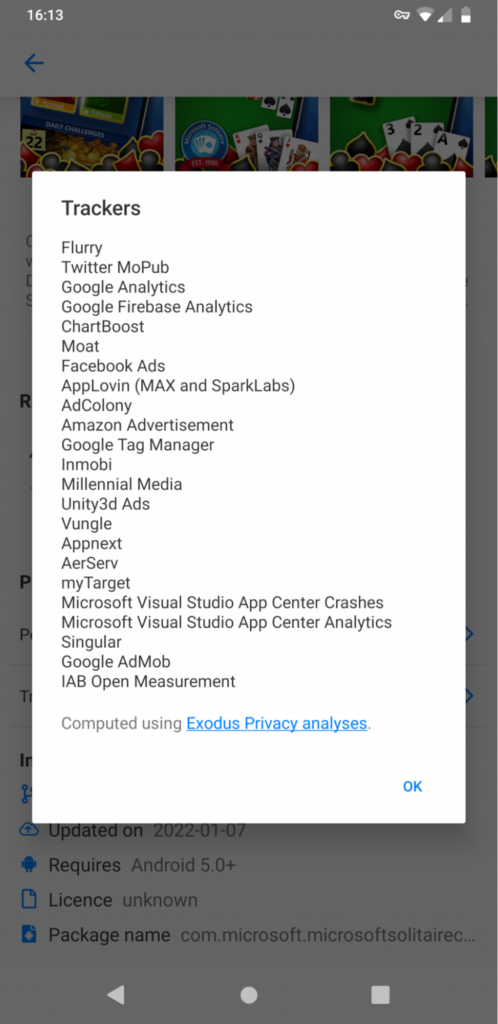
With the /e/OS app store, it's easy to find which apps are spying on you. You can then choose whether or not to import them into your system. Keep in mind that only one app with a tracker installed can completely destroy your hard-earned privacy.
Larger /e/OS Ecosystem
Most people use some form of cloud storage to automatically back up pictures, store sensitive files that need to be accessible, or organize calendars.
When you set up your device, you will be asked if you want to create an account with ecloud. If you wish, you will be given an email account (eg. [email protected]), agenda and contacts, photo gallery and online office suite.
These services are built on Nextcloud and can be accessed through apps on your phone or through the web portal on any device.
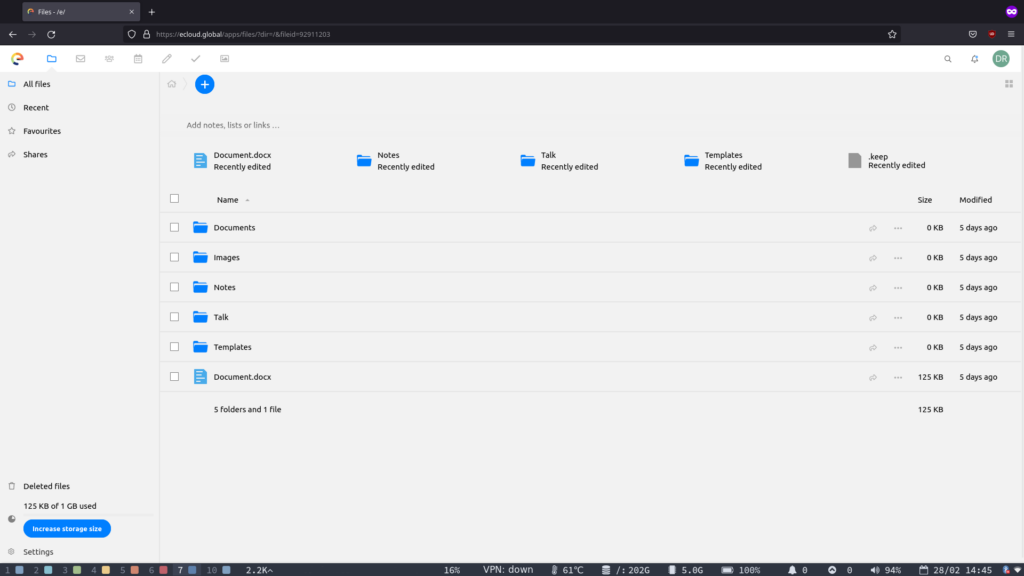
Synchronization is automatic. If you already have your own Nextcloud server, you will have access to these and other much more comprehensive services.
An Alternative Operating System Option: Graphene Operating System
Edinburgh University's report is significant as it shows that few Android variants are as secure and privacy-friendly as claimed. And it offers a great, easy-to-install alternative. However, a few other options are also available. If you don't want to try /e/OS, I recommend Graphene OS instead.
Graphene operating system
Graphene OS is another Android-based ROM that removes any connection to Google and unreliable third-party apps.
The operating system was developed in 2014 by Daniel Micay, co-founder of CopperheadOS, and was previously known as the Android Hardening Project. Graphene does not come with an app store, meaning users are free to make their own choices.
The browser is Vanadium, another hardened and stripped down fork of Chromium.
Even with the WebUSB-based installer, the installation is less hands-on than the /e/OS' easy installer, so it may be too complex for some users.
Best Graphene OS Features
- No Google app and service: these can be used on GrapheneOS, but only if they don't require invasive OS integration.
- Minimally packaged apps and services: Only necessary applications are integrated into the operating system.
- Security-focused first-party GrapheneOS app repository
Graphene OS has official production support for 4 to 6 Google Pixel models, including A, XL, and Pro variants.
/e/Should you install OS?
Definitely yes. If you're someone who cares about your privacy and want an easy-to-install mobile operating system that doesn't require you to simplify, I don't think there is a better option.
/e/OS removes bloatware, trackers, and all links to Google, leaving you with a perfectly usable Android handset that works for you rather than the manufacturer. And the addition of the free nextcloud-based suite of cloud services means you don't lose any functionality.

...

Comments
Post a Comment